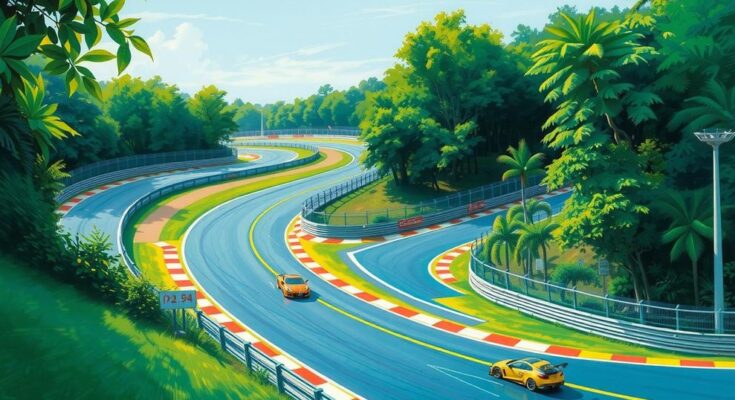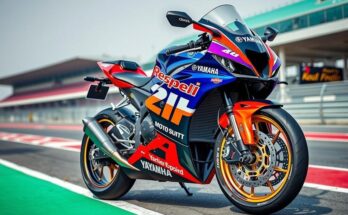Plans for a Formula 1 race in Thailand are advancing as CEO Stefano Domenicali engages in discussions in Bangkok. With the 2025 season featuring 24 races, interest in new hosting locations is rising. Thailand aims to establish itself on the global event stage while exploring innovative rotational race formats to enrich the F1 calendar.
Thailand has long expressed its ambition to host a Formula 1 Grand Prix, and discussions are set to continue next week as Formula 1 CEO Stefano Domenicali visits Bangkok following the Australian Grand Prix. The current F1 calendar is at its fullest ever, consisting of 24 scheduled races for the 2025 season, starting this weekend in Melbourne.
Despite the crowded calendar, renewed interest in Formula 1 has led to several potential new host cities vying for inclusion in future years. Among these developments, the Madrid Grand Prix will feature in the next season, while the Belgian Grand Prix has successfully secured a rotational agreement, allowing for the possibility of additional tracks.
Recently, it was confirmed that Stefano Domenicali will remain as president and CEO of Formula One Management for an additional five years, having held the position since 2021. Throughout this term, expanding F1 into new markets will be a crucial objective for Domenicali.
Domenicali expressed confidence in the sport’s growth, stating, “I think that the good thing that we were able to do in the last couple of years is to focus on the places that we do believe represent the future for Formula 1.” After his commitments in Melbourne, he intends to meet with Thai government officials to assess interest in developing a race in Thailand.
Advancing the notion of a Bangok street race has gained momentum, particularly after Thai Prime Minister Srettha Thavisin attended the Emilia Romagna Grand Prix and subsequently indicated discussions with Domenicali. He declared: “In line with the Thai Government’s intention to bring F1 racing to Thailand in the near future … this resonates with our policy to place Thailand on the global radar for international events and activities.”
Notably, Rwanda has also voiced aspirations to reintroduce Formula 1 to Africa, while at the same time, there are conflicting sentiments from representatives of the Democratic Republic of Congo asking against hosting races amidst ongoing regional turmoil. Moreover, hints from Domenicali during the last United States Grand Prix suggest Argentina may rejoin the F1 calendar, having last hosted a race in 1998.
As the 2025 season approaches, McLaren CEO Zak Brown praised the possibility of incorporating rotational races, though he believes the current calendar is capped at 24. Brown emphasized, “I don’t think it has hit its peak, which is quite exciting,” arguing for a structure of 20 fixed races complemented by eight rotational events as a strategy for continued expansion of the sport.
The prospect of a Formula 1 Grand Prix in Thailand is moving forward with Stefano Domenicali’s planned visit to Bangkok. As interest in hosting races surges globally, Thailand seeks to enhance its international profile through potential F1 events. Given the packed calendar, innovative structures like rotational races may emerge as solutions to accommodate new venues while maintaining competitive balance within the sport.
Original Source: www.autosport.com




